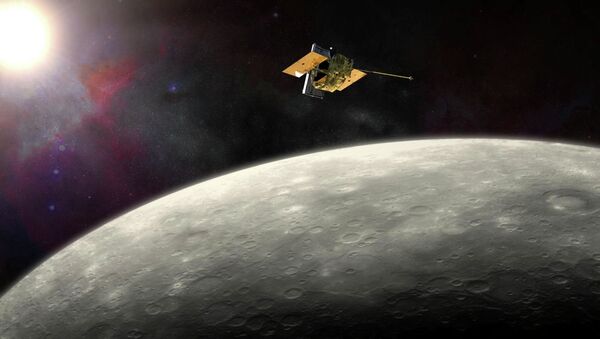The next probe to study Mercury, the BepiColombo mission set for launch in 2017, "will be looking for signs of this crater, and if they can make measurements of it, they will know precisely how long that region has been exposed to space," explained Sean Solomon, the principal investigator of the Messenger mission and director of the Lamont-Doherty Earth Observatory at Columbia University.
This will give you an idea of how big my crater will be. http://t.co/JeNn54c6RQ pic.twitter.com/7rFZHE5P6p
— MESSENGER (@MESSENGER2011) 29 апреля 2015
The three-meter wide Messenger is the first spacecraft to visit Mercury since the Mariner 10 performed three flybys of the planet in 1975, and the end of the mission marks "the beginning of a longer journey to analyze the data that reveals all the scientific mysteries of Mercury," said John Grunsfeld, associate administrator for the Science Mission Directorate at NASA Headquarters in Washington.
"For the first time in history we now have real knowledge about the planet Mercury that shows it to be a fascinating world as part of our diverse solar system."
Among Messenger's key findings is compelling support for the hypothesis that Mercury harbors abundant frozen water and other volatile materials in its permanently shadowed polar craters, a discovery which allows scientists to build a picture of how the inner planets, including Earth, acquired water and some of the chemical building blocks for life.





